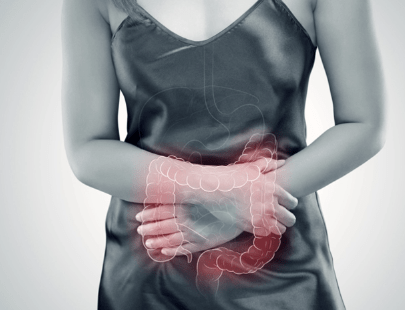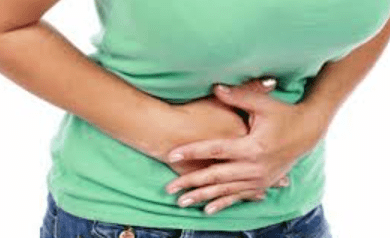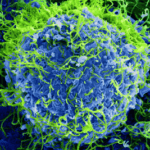Salmonella infection
Salmonella infection (salmonellosis) is a common bacterial disease that affects the intestinal tract. Salmonella bacteria typically live in animal and human intestines and are shed through stool (feces). Humans become infected most frequently through contaminated water or food. Some people with salmonella infection have no symptoms. Most people develop diarrhea, fever and stomach (abdominal) cramps within 8 to 72 hours after exposure. Most healthy people recover within a few days to a week without specific treatment.
In some cases, diarrhea can cause severe dehydration and requires prompt medical attention. Life-threatening complications also may develop if the infection spreads beyond the intestines. The risk of getting salmonella infection is higher with travel to countries without clean drinking water and proper sewage disposal.
Symptoms
Possible signs and symptoms of salmonella infection include:
- Diarrhea
- Stomach (abdominal) cramps
- Fever
- Nausea
- Vomiting
- Chills
- Headache
- Blood in the stool
Signs and symptoms of salmonella infection generally last a few days to a week. Diarrhea may last up to 10 days, but it may take several months before bowels return to usual stool habits. A few varieties of salmonella bacteria result in typhoid fever, a sometimes deadly disease that is more common in developing countries.
Causes
- Raw meat, poultry and seafood.Feces may get onto raw meat and poultry during the butchering process. Seafood may be contaminated if harvested from contaminated water.
- Raw or undercooked eggs.While an egg’s shell may seem to be a perfect barrier to contamination, some infected chickens produce eggs that contain salmonella before the shell is even formed. Raw eggs are used in homemade versions of foods such as mayonnaise and hollandaise sauce.
- Unpasteurized dairy products.Unpasteurized milk and milk products — sometimes called raw milk — may be contaminated with salmonella. The pasteurization process kills harmful bacteria, including salmonella.
- Fruits and vegetables.Some fresh produce, particularly imported varieties, may be irrigated in the field or washed during processing with water contaminated with salmonella. Contamination can also occur in the kitchen, when juices from raw meat and poultry come into contact with uncooked foods, such as salads.
When to see a doctor
Most people don’t need to seek medical attention for salmonella infection because it clears up on its own within a few days.
However, if the affected person is an infant, young child, older adult or someone with a weakened immune system, call a health care provider if illness:
- Lasts more than a few days
- Is associated with high fever or bloody stools
- Appears to be causing dehydration, with signs such as such as urinating less than usual, dark-colored urine and having a dry mouth and tongue

Risk Factor
Increased Exposure
- International travel.Salmonella infection, including varieties that cause typhoid fever, is more common in developing countries with poor sanitation.
- Owning, handling or petting animals.Some animals, particularly birds and reptiles, can carry salmonella bacteria. Salmonella can also be found in animal pens, tanks, cages and litter boxes.
Stomach or Bowel Disorder
The body has many natural defenses against salmonella infection. For example, strong stomach acid can kill many types of salmonella bacteria. But some medical problems or medications can short-circuit these natural defenses.
Examples include:
- Lowering the stomach’s acidity allows more salmonella bacteria to survive.
- Inflammatory bowel disease.This disorder damages the lining of your intestines, which makes it easier for salmonella bacteria to take hold.
- Recent use of antibiotics.This can reduce the number of “good” bacteria in your intestines, which may impair your ability to fight off a salmonella infection.
Immune Problem
Some medical problems or medications appear to increase your risk of catching salmonella by weakening your immune system. This interferes with your body’s ability to fight infection and disease. Examples include:
- HIV/AIDS
- Sickle cell disease
- Malaria
- Anti-rejection drugs taken after organ transplants
- Corticosteroids
Treatment
Treating Dehydration
Because salmonella infection can cause dehydration, treatment focuses on replacing lost fluids and electrolytes — minerals that balance the amount of water in the body.
If dehydration is severe, emergency room care or hospitalization may be needed so that fluids can be delivered directly into a vein (intravenous).
Medications
- Anti-diarrheals.Medications such as loperamide (Imodium A-D) can help relieve cramping from diarrhea. However, they may also prolong the diarrhea associated with salmonella infection.
- Your health care provider may prescribe antibiotics to kill the bacteria. These are usually given if your provider suspects that salmonella bacteria have entered your bloodstream, your infection is severe or you have a weakened immune system.
Antibiotics are not helpful in most cases of salmonella infection. In fact, antibiotics may extend the period in which you carry the bacteria and can infect others. They can also increase your risk of getting infected again (relapse).
Remedies
Even if you don’t need medical attention for your salmonella infection, you need to take care not to become dehydrated, a common concern with diarrhea and vomiting.
- Most adults with mild to moderate dehydration from diarrhea, vomiting or fever can improve their condition by drinking more water or other liquids. Diarrhea may be worsened by full-strength fruit juice and soft drinks.
- For infants and children who have become dehydrated from diarrhea, vomiting or fever, use oral rehydration solutions that you can buy without a prescription. These solutions contain water and salts in specific proportions to replenish both fluids and electrolytes.

